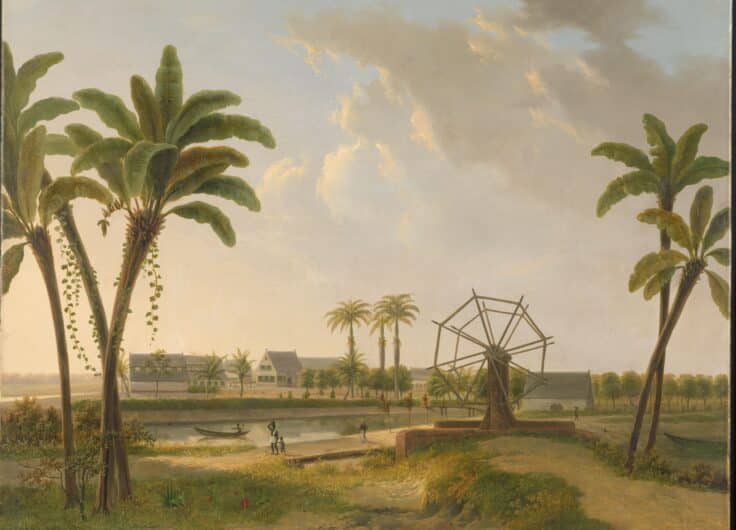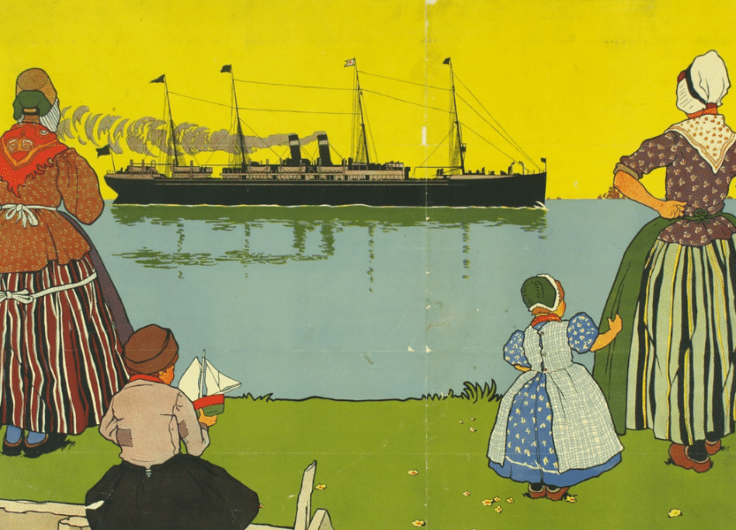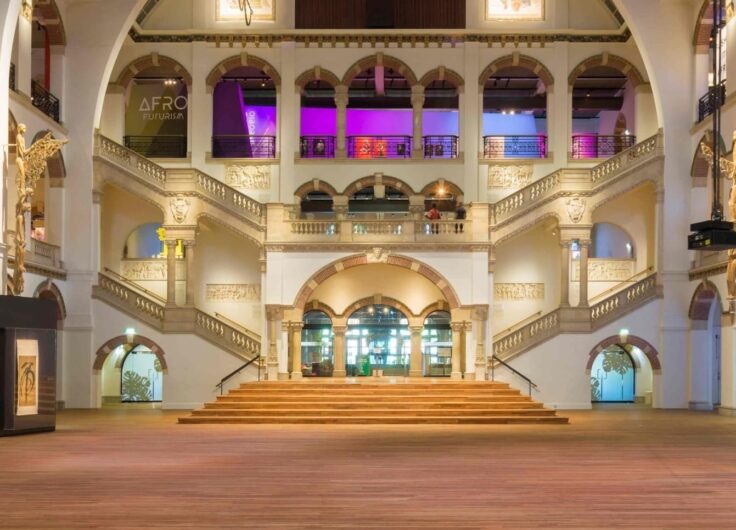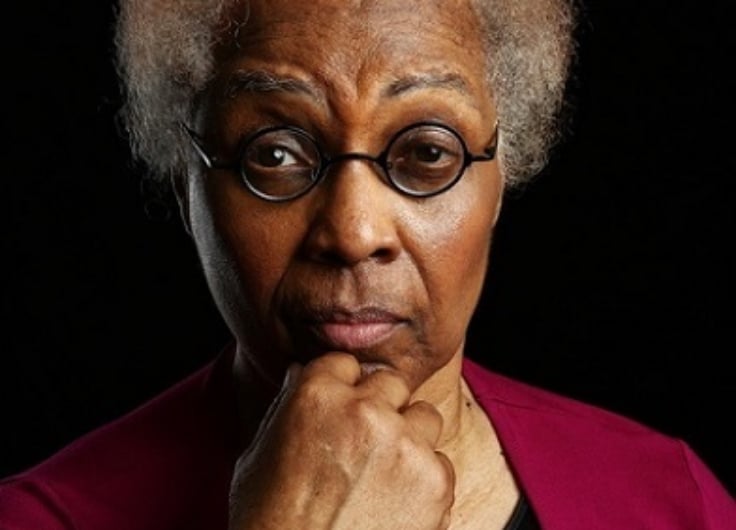The Struggle For Political Participation Is Never Over
In his tome The Voice of the People?, Wim Blockmans not only examines eight centuries of political participation in Europe, he also ventures to link his historical study with the dilemmas with which political participation struggles today. His conclusions could be useful in dealing with today’s ‘crisis of democracy’ and in tackling the unease caused by political stagnation.
During the early months of the pandemic, regional differences in European political culture once again became sharply apparent. While France announced measures against the spread of the virus in military terms from a magnificent presidential palace, Dutch Prime Minister Mark Rutte, in a bare press room, appealed to citizens’ own sense of responsibility to show initiative in complying with the advice of companies and local communities. According to Wim Blockmans, emeritus professor of Medieval History at the University of Leiden, these differences can be traced back to the various age-old social relationships that are reflected in the political systems.
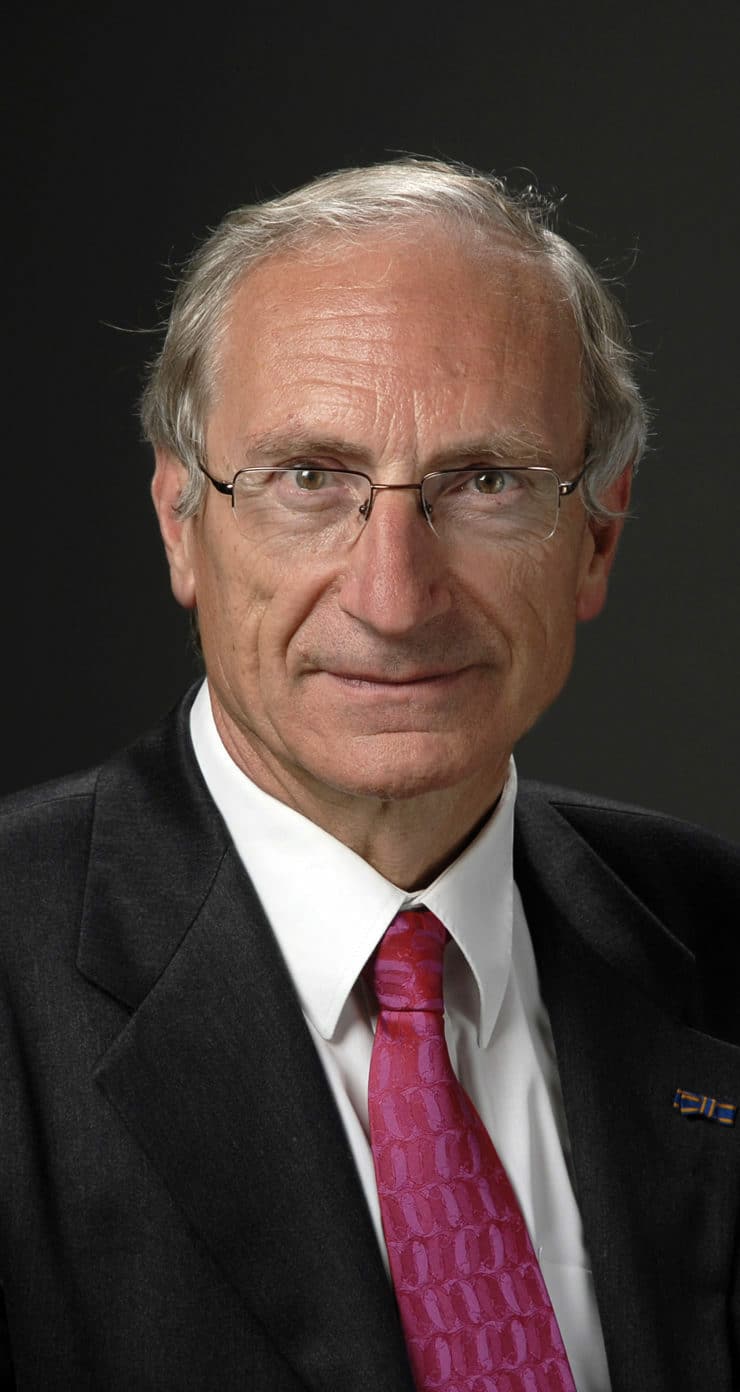 Wim Blockmans
Wim BlockmansBlockmans set himself a major challenge in his book The Voice of the People?. He wants to highlight the rise and development of participation by non-privileged subjects, citizens and peasants, in political decision-making at a territorial level. With this bottom-up perspective he distances himself from previous generations of researchers, who paid great attention to the actions of monarchs and their entourages. Parliamentary institutions that operated within well-defined political boundaries, preferably those that already reflected the nation-states that would come later, were a traditional object of research. In line with the growing attention to diversity in which political emancipation developed, Blockmans focuses on the political participation that emerged from the grassroots. He does not limit himself, either, to the history of one country, but has produced a comparative study at the European level. Furthermore, he aims to find an explanation for the way in which political participation has or has not taken shape over the centuries and in different places.
The starting point for Blockmans’ research is how the evolution of political institutions relates to socioeconomic developments. That is why political geography plays an important role in Blockmans’ explanatory mechanism. The fact is that a territory’s geographic characteristics determined the possibility of building up the means of exercising power there. A complex interplay of natural conditions and human interactions determined the form institutions took. Once they were consolidated, these institutions tended towards continuity, according to Blockmans.
Blockmans has delivered a thorough overview that at the same time has a strongly demonstrative character
Broadly speaking, this study differentiates between Central and Eastern Europe, and Western Europe. Central and Eastern Europe had vast empires where rulers forced communities in sparsely populated areas, with low productivity and few tradable goods, to pay dues on their meagre agricultural production. Empires like these were not established in Western Europe, because (aspiring) rulers there had to negotiate with large trading cities about taxing trade. These cities had considerable resources of their own and extensive autonomy, which put them in a strong position to protect their interests. Blockmans draws particular attention to the spontaneous activity of city federations, such as in the Land of Liège. The formation of these city federations did not depend on monarchical decisions and, moreover, their sphere of influence took no account of political boundaries.
Blockmans regards the Reformation as a catalyst in the process of creating the various forms of political participation in Europe. Protestantism in Western Europe strengthened the development of a less hierarchical assembly culture at the local and regional level.
So, when did political participation start to be successful? According to Blockmans, the political participation of the ‘third estate’ – or commoners – was only institutionalised in those places where the members of that estate were numerous enough and had so much capital that they outweighed the resources of the monarch and his or her traditional supporters among the clergy and nobility. In a general sense Blockmans ventures the thesis that in phases of profound economic and demographic expansion, the pressure on the existing political system to change the balance of power increased. This, in combination with growing urbanisation, meant those in power were forced to extend participation to the new social classes and to address their specific concerns.
Blockmans underpins this conclusion with his impressive knowledge of European constitutional traditions, such as the solid arguments used in Brabant and the United Provinces, a knowledge Blockmans has built up over the course of his career. In addition to this, he supports his claims with extensive statistical data, although he himself also indicates that, for example, the frequency of meetings is perhaps a superficial yet significant indicator of representative activity.
The COVID-19 pandemic has raised questions about the ideals of the global market economy
It is to Blockmans’ credit that he has delivered a thorough overview that at the same time has a strongly demonstrative character. The Voice of the People? is quite a tome, but that is not a problem. The subparagraphs in which Blockmans discusses the various countries are all intriguing, and he connects these cases with each other on the basis of clear intermediate positions. This makes the book just as suitable for readers looking for information about political participation in a particular region or period as it is for participants in the debate on political participation in history. However, the addition of maps with, for example, a representation of the three creation phases that Blockmans distinguishes could have increased the accessibility of his conclusion.
Furthermore, Blockmans has ventured to link his historical study to the dilemmas with which political participation struggles today. In the introduction, he refers briefly to the fundamental question that has preoccupied historians for the last forty years already. Namely, to what extent did the representation of the ancien régime’s estates form the basis of parliamentarianism in the nineteenth century? On the other hand, he himself prefers to draw a line between the period before 1800 and the present. As a result, the intervening period – the centuries of modern parliamentary politics – is largely left out of consideration.
Now that a severe economic recession awaits us, are we heading for a restriction of political participation?
That seems to me to be a loss for the continuity argument, because how, for instance, does the rise of political parties in the late nineteenth and early twentieth centuries relate to the ‘glory days’ of representative institutions in the thirteenth and fourteenth centuries? The consequences of the revolutionary period – in which the Napoleonic wars, he points out, sounded the death knell of the ancien régime – also receive little attention. When Blockmans does deal with them, he speaks mainly of the protracted negative impact, such as the estate society of the ‘special case’ of Sweden (1866), and serfdom in Austria (1848) and Russia (1861). Furthermore, he questions the revolutionary character of the rifts in 1789 and 1848. Essential concepts such as equality before the law had already been formulated during the ancien régime, and after these revolutions a period of restoration began in which the old elite returned to power. That elite was trained in the value system of the ancien régime, and certainly behaved accordingly. However, in order to maintain itself in a restoration regime it had to have more adaptability to the achievements of the revolutionary period than Blockmans attributes to the old elite.
Nevertheless, the contemporary chapter of the book offers important food for thought. One of the core problems of the democratic constitutional state that Blockmans identifies is the lack of reliability of information, the basis of political participation. One cause of that is, of course, the internet, which is as all-encompassing as it is elusive. Virtually anyone can spread sounds and texts across the globe in just a few seconds, says Blockmans. He points to the phenomenon of messages that go viral, but he feels that this imagery is inadequate, as no viral infection can spread at the pace and with the scope of electronic communication. In the current circumstances, however, we can see that institutionalised political participation cannot cope with the worldwide spread of a real viral infection, despite the speed of electronic communication.
The COVID-19 pandemic has raised questions about the ideals of the global market economy. Reading this book against that background provides a useful insight into the crisis of today’s democracy. Centuries of European power struggles have been characterised by periods of economic expansion and demographic growth that led to political participation, interspersed with periods of stagnation, in which those in power took advantage of the downturn in the economy to curb participation. So, now that a severe economic recession awaits us, are we heading for a restriction of political participation? Not necessarily because, according to Blockmans, political processes have their own dynamic that is partly independent of the social structures. Individuals themselves can therefore be the deciding factor or the dynamic of the interaction.
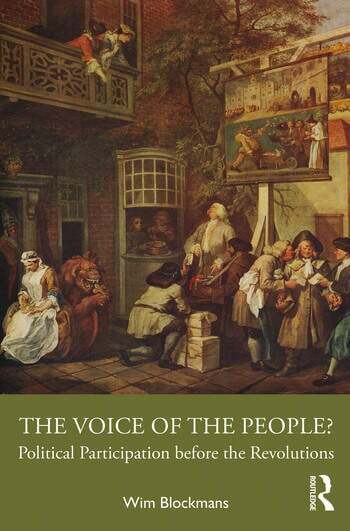
In any case, the recent wave of global demonstrations around the climate crisis and racism clearly shows that the institutionalisation of political participation still needs to take important steps and reconsider existing structures. Inspired by the bottom-up perspective that Blockmans takes, one might think first of all of restructuring participation at a local level. How can the interests expressed by protest movements be sustainably represented at that level? The democratic crisis offers those in power the opportunity to show that the pattern that Blockmans demonstrates can be broken. To do so, they must use the period of economic stagnation that we are going through to shore up political participation. Let us hope that Blockman’s study will be a wise lesson for the present and future institutionalisation of political participation.
Wim Blockmans, The Voice of the People? Political Participation before the Revolutions, Routledge, Oxfordshire, 2024, 458 pages
This article is the English translation of the review of the original Dutch-language book ‘Medezeggenschap’ by Wim Blockmans.


